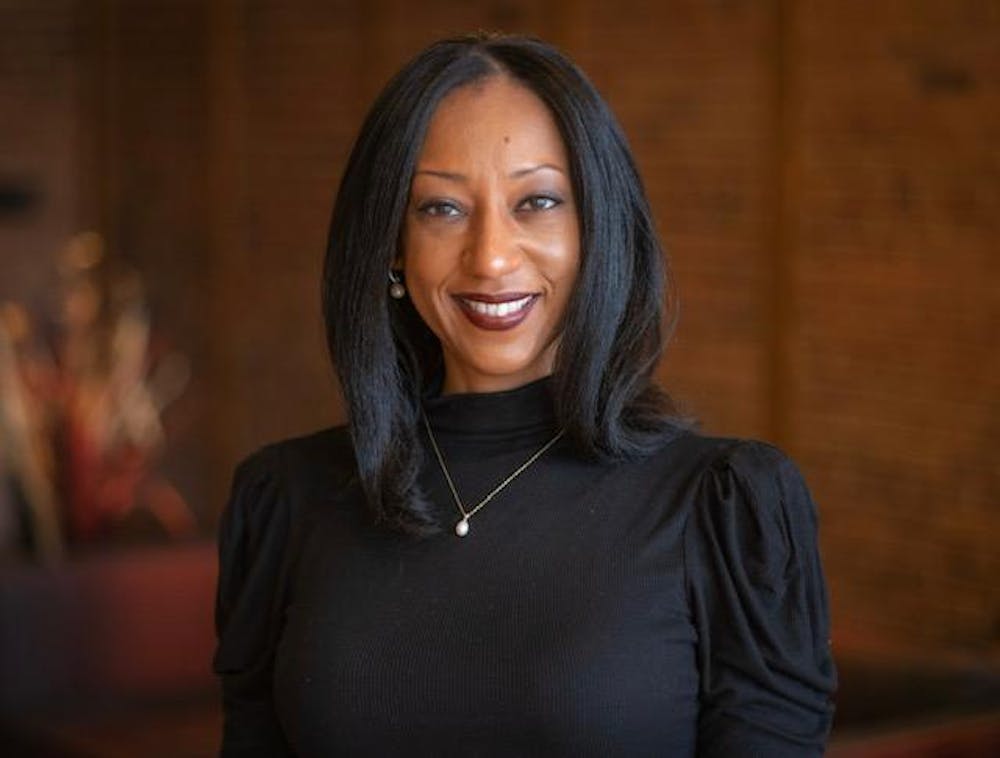On Feb. 1, Esther Jones was announced as the inaugural associate dean of faculty development — a new role within the Office of the Dean of the Faculty — according to an email from Dean of Faculty Leah VanWey, which was shared with The Herald.
The position looks to support faculty — especially junior faculty — growth and development, and was born out of reports by the Task Force on the Status of Women Faculty and the Task Force on Anti-Black Racism, according to VanWey. Jones, who is new to Brown, also joined as an associate professor of Africana studies.
In 2023, The Task Force on the Status of Women Faculty recommended that President Christina Paxson P’19 P’MD’20 “create a University-wide mentorship program for faculty, especially all junior faculty, to ensure consistent, high-quality mentoring by trusted, experienced faculty residing within and outside of their home department.”
The Task Force on Anti-Black Racism highlighted the need for faculty development to address anti-Black racism.
The new position “was created to provide extra-departmental support for faculty across the University, in skills that span fields (e.g., managing teams, mentoring junior colleagues) and through programs that demystify some aspects of being a faculty member,” VanWey wrote in an email to The Herald.
“We recognized, in part from the reports of the (the two task forces), that such extra-departmental support is essential for the success of an increasingly diverse professoriate,” she added.
Jones began at Clark University’s English department before serving as the inaugural director of its Africana Studies program. At Clark, she was also the first associate provost and dean of the faculty.
“I spent the past five years at Clark doing faculty development work, working closely with the faculty (and) our faculty governance committees,” Jones said in an interview with The Herald. “It was my position to shape, which I love.”
According to Senior Associate Dean of the Faculty Anne Windham, “faculty need different support systems” and Jones will “be meeting with faculty across the University, also the higher level administration to build these supports.”
Jones shared that her first few months in this new role will be primarily focused on listening to faculty needs.
“Different institutions have different cultures (and) different needs,” she said. “I’m going to be meeting with tons of people: department chairs, directors (and) some of the other deans in the other schools … so that I can ultimately support the faculty.”
Through this “listening tour,” Jones hopes to determine the most pressing needs of the faculty. She expects that these conversations will supplement previous faculty reports and surveys.
“When faculty can do their work to the best of their ability, that serves the students,” Jones said. “Ultimately, students will suffer if the faculty are not enabled to do their jobs.”
Beyond her administrative work, Jones conducts research in the medical humanities, particularly “thinking about bioethical issues and principles in typically a literary and cultural studies lens,” she said. Her first book explores Black women’s health in speculative and science fiction, and she is currently researching “mental health narratives for Black people.”
Jones entered faculty life younger than most, which she sees as a benefit. “I remember what it was like to land my first tenure track job,” she said. “I remember what it was like to be a new faculty member and people just assume that you know stuff.”
“I’m not so far removed from going through those processes,” Jones added.

Ryan Doherty is the managing editor of digital content and vice president of The Herald's 135th editorial board. He is a junior from Carmel, NY who is concentrating in chemistry and economics. He previously served as a university news and science & research editor, covering faculty and higher education.





